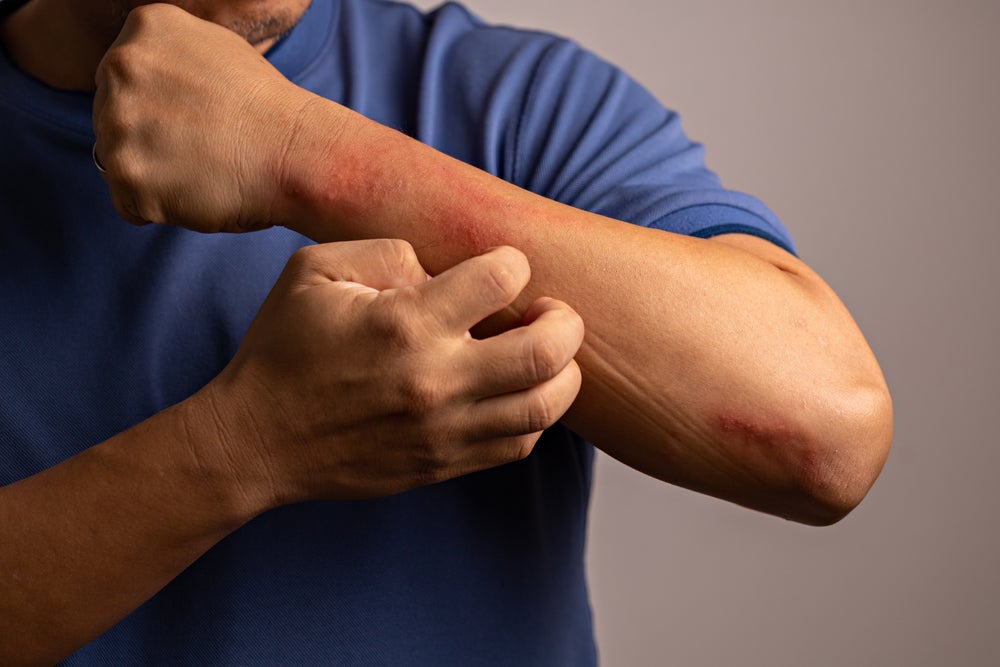Atopic dermatitis (AD) is the most common type of eczema. It is a chronic skin condition that causes inflammation, skin dryness, itch and rash. The exact cause of AD is unknown, but genetics, lifestyle factors (such as diet), the immune system and the environment are thought to play a role. In a recent UK study published by Chiang and colleagues in the Journal of the American Medical Association Dermatology, a higher level of dietary sodium markedly increased the chance of developing AD and increased disease severity.
The cross-sectional study by Chiang and colleagues examined 24-hour urine sodium excretion in 215,832 participants ages 30 years and older obtained from the UK Biobank between 2006 and 2010. Biomarkers were evaluated through urine collected at a single point in time, with other factors taken into consideration such as body mass index, sex, age and urine concentrations of sodium, potassium and creatine. The study found an average urine sodium excretion of 3.01 grams per day, with 5% of participants having a diagnosis of AD. Further analysis revealed that a one-gram increase in estimated 24-hour urine sodium excretion was associated with an 11% increased risk of developing AD, a 16% increased risk of developing active AD and an 11% increased risk of higher disease severity. Research suggests that sodium, when stored in the skin, triggers the immune system and increased inflammation. This excess sodium pushes the immune system towards more inflammatory responses commonly observed in AD.

Access deeper industry intelligence
Experience unmatched clarity with a single platform that combines unique data, AI, and human expertise.
According to GlobalData epidemiologists, 12-month diagnosed prevalent cases of AD in all ages are expected to grow from 42 million in 2024 to almost 42.5 million by 2033 in the 7MM (7MM: France, Germany, Italy, Japan, Spain, the UK and the US). Around 85% of cases are mild-moderate and 15% of cases are severe.
The results of this study may prompt more accessible interventions for AD that would aim to restrict dietary sodium. This would be a simple yet cost-effective way to improve patient outcomes and quality of life. Additional research is still needed to further support, elaborate on and replicate these findings, but this is a positive step towards more informed preventative measures and treatment regimens.

US Tariffs are shifting - will you react or anticipate?
Don’t let policy changes catch you off guard. Stay proactive with real-time data and expert analysis.
By GlobalData


